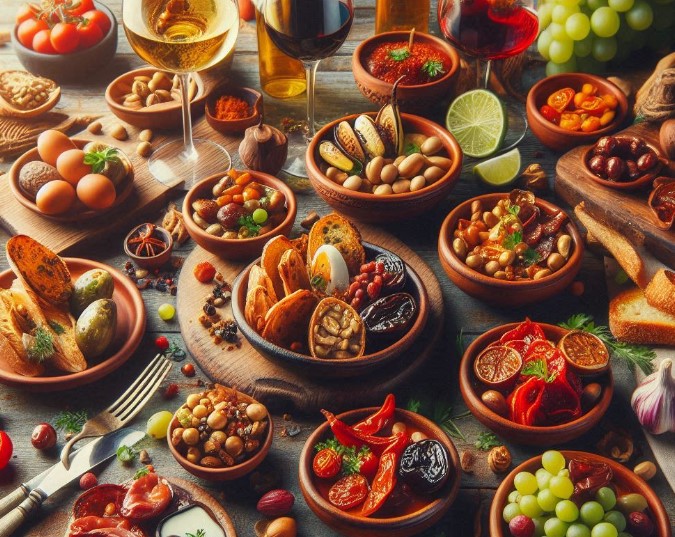Spain today honors one of its most emblematic and beloved culinary symbols: the Tapa. World Tapa Day celebrates not just a small portion of food, but an entire way of life deeply rooted in Spanish culture. From quaint village bars to bustling city counters, the Tapa is omnipresent, inviting enjoyment and lingering.
The Mysterious Origins of the Tapa: More Than Just a Cover
The exact origins of the Tapa are shrouded in myth. One popular theory suggests that King Alfonso X the Wise once decreed that a small dish should be served with every glass of wine to mitigate the effects of alcohol. Another charming tale speaks of innkeepers placing small plates or pieces of bread as a “lid” (Spanish: tapa) over wine glasses to keep out insects or dust. From this practical gesture, a deeply ingrained tradition evolved, now inextricably linked with Spanish daily life.
A Culinary Journey Through Spain’s Diverse Tapas
Each region of Spain proudly showcases its own Tapa specialties, reflecting the country’s rich culinary diversity:
- In Andalusia, Pescaíto frito (small fried fish) tempts gourmets.
- Madrid is famous for its fiery Patatas bravas.
- In Castile, the classic Tortilla de patatas is a must-try.
- The Basque Country seduces with artistic Pintxos.
- La Mancha impresses with hearty Embutidos (cured meats).
These regional specialties make “tapas hopping” a true journey of discovery for the palate and a crucial part of culinary tourism in Spain.
Between Tradition and Avant-garde: The Evolving Tapa
Although the Tapa is deeply rooted in tradition, it remains surprisingly dynamic. Alongside timeless classics, new and innovative creations constantly emerge, often influenced by international cuisines and modern cooking techniques. Today, one might find an Asian-inspired Bao with oxtail or a reinterpreted Ensaladilla rusa (Russian salad) with trout caviar alongside the traditional Pulpo a la gallega (Galician-style octopus). The Tapa continuously reinvents itself without losing its popular appeal.
Tapas: A Philosophy of Life
Tapas are far more than just small bites; they are an invitation to share, to pause, and to enjoy. They encourage us to view often hectic everyday life through different eyes and to consciously experience the moment. Those who enjoy tapas do not rush – they live. In this small but significant break from the pace of daily life lies the true secret of their enduring popularity. They reflect the Spanish character: gregarious, inventive, generous, and down-to-earth.
World Tapa Day: A Global Celebration
World Tapa Day not only honors this unique culinary tradition but also promotes the hospitality industry, the Mediterranean lifestyle, and culinary tourism in Spain. Cities like Seville, Granada, Zaragoza, and Logroño organize special tapas routes, competitions, workshops, and cultural activities on this day. Even in Spanish embassies and consulates worldwide, this day is celebrated with tastings to share a piece of Spain with the world.
Tapas are a fascinating interplay of flavors, a dance between diversity and simplicity. They allow for experiencing and sharing a wide range of tastes in a single meal. They are democratic, accessible, and profoundly local. In an increasingly digital and fast-paced world, Tapa Day reminds us of the invaluable worth of simplicity: good conversation, a glass of wine, and a small, delicious bite that creates unforgettable memories. And that is precisely Spain – in its most flavorful form.




